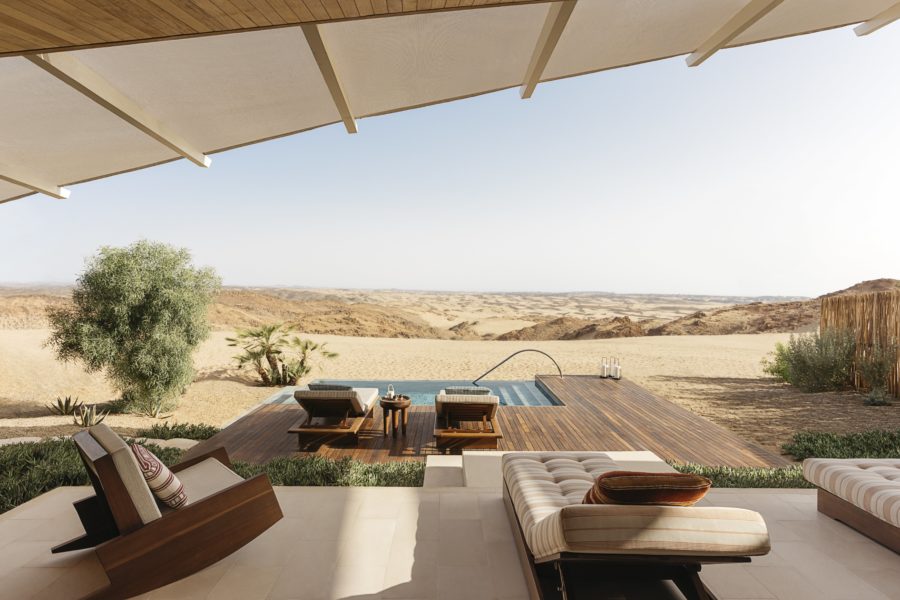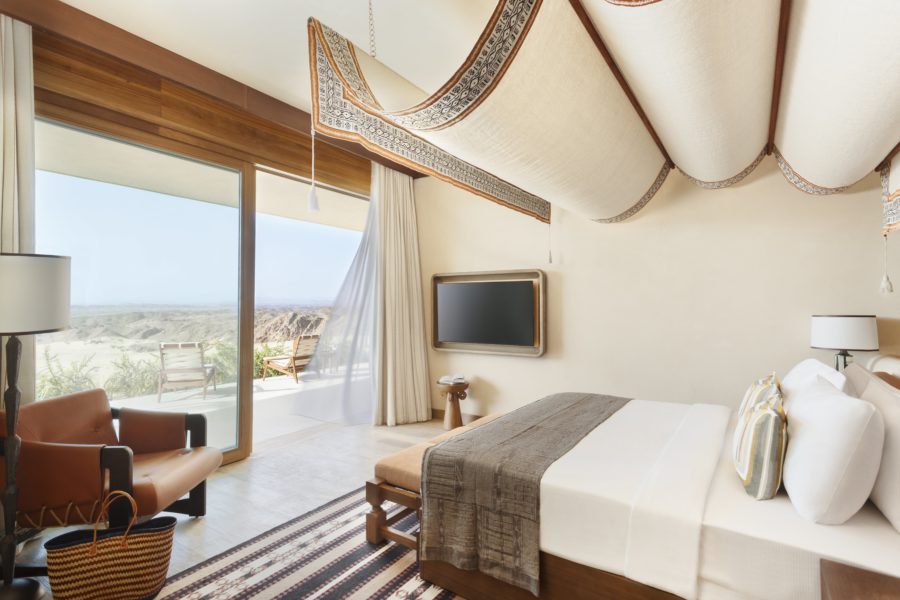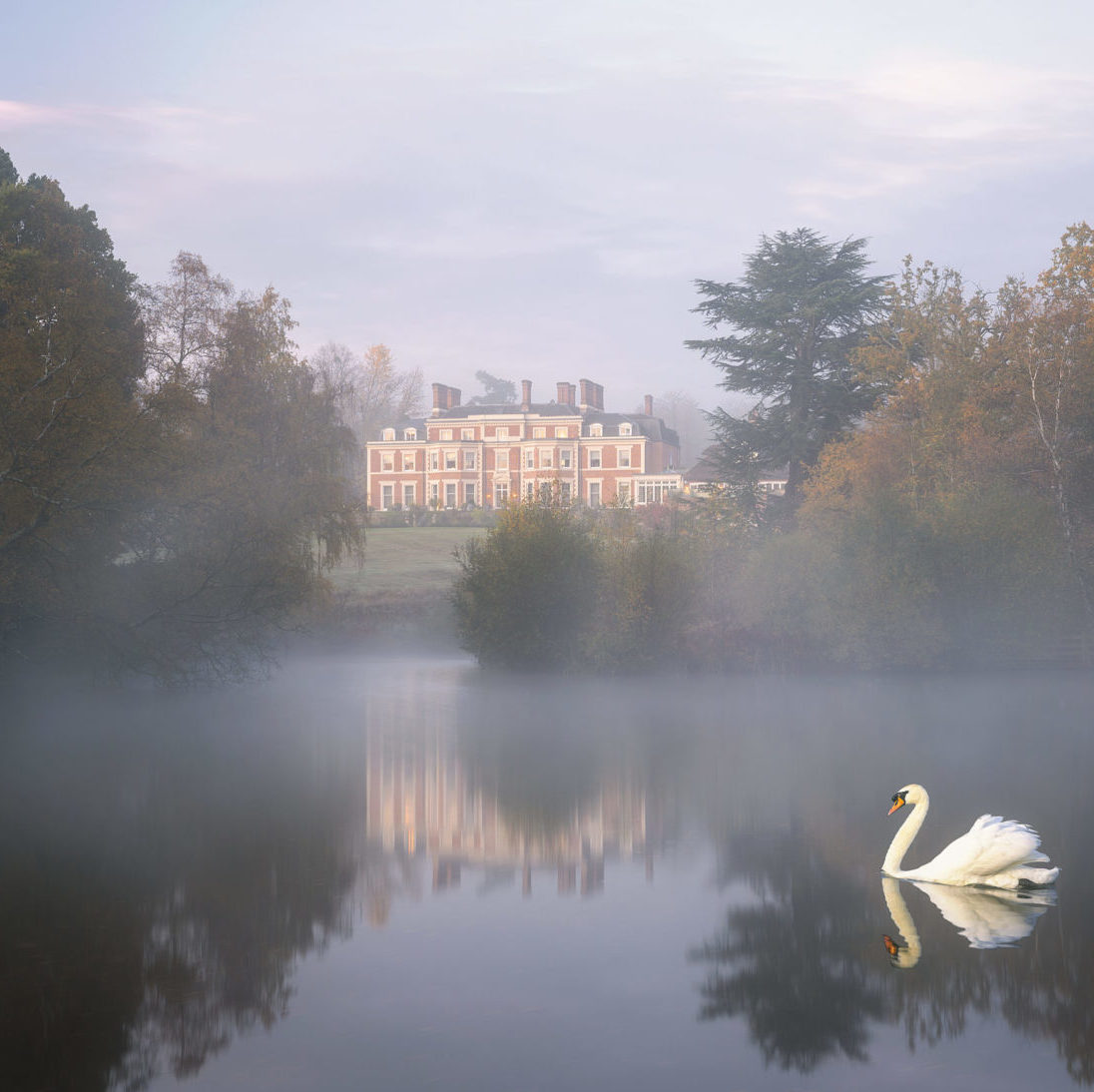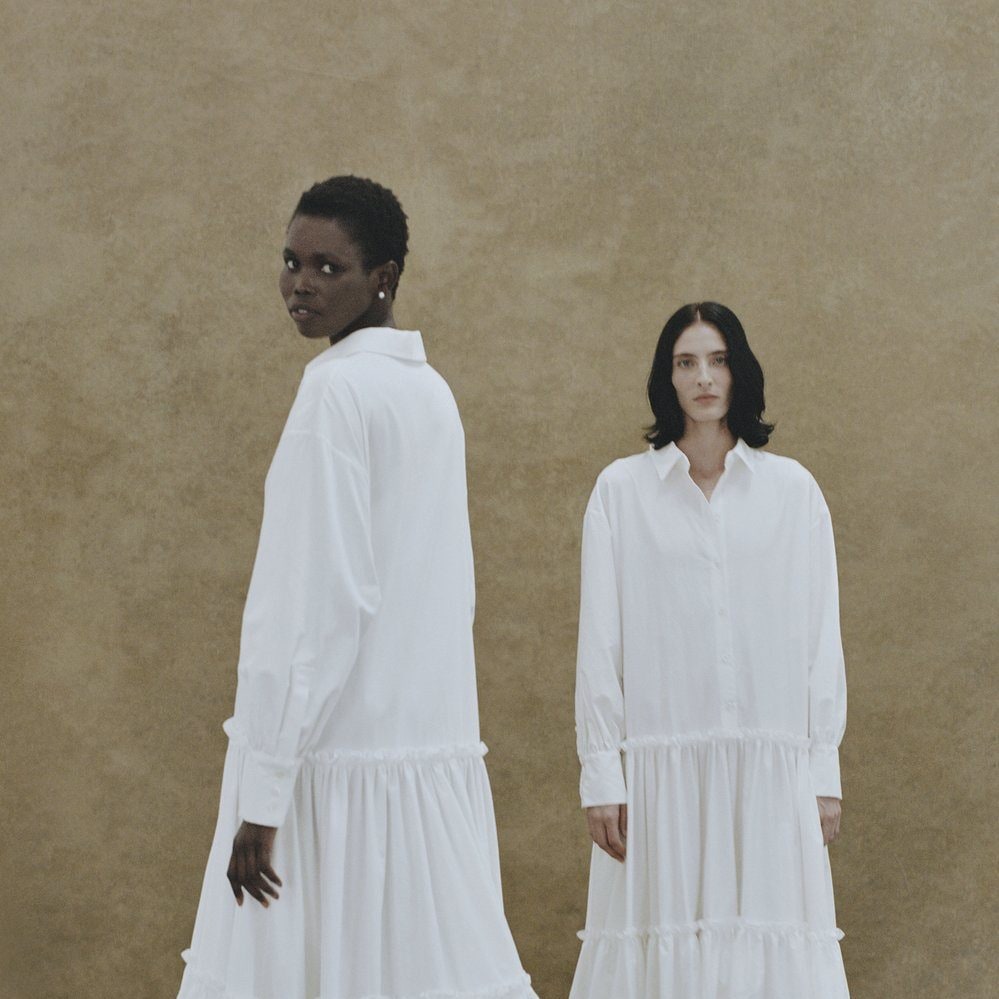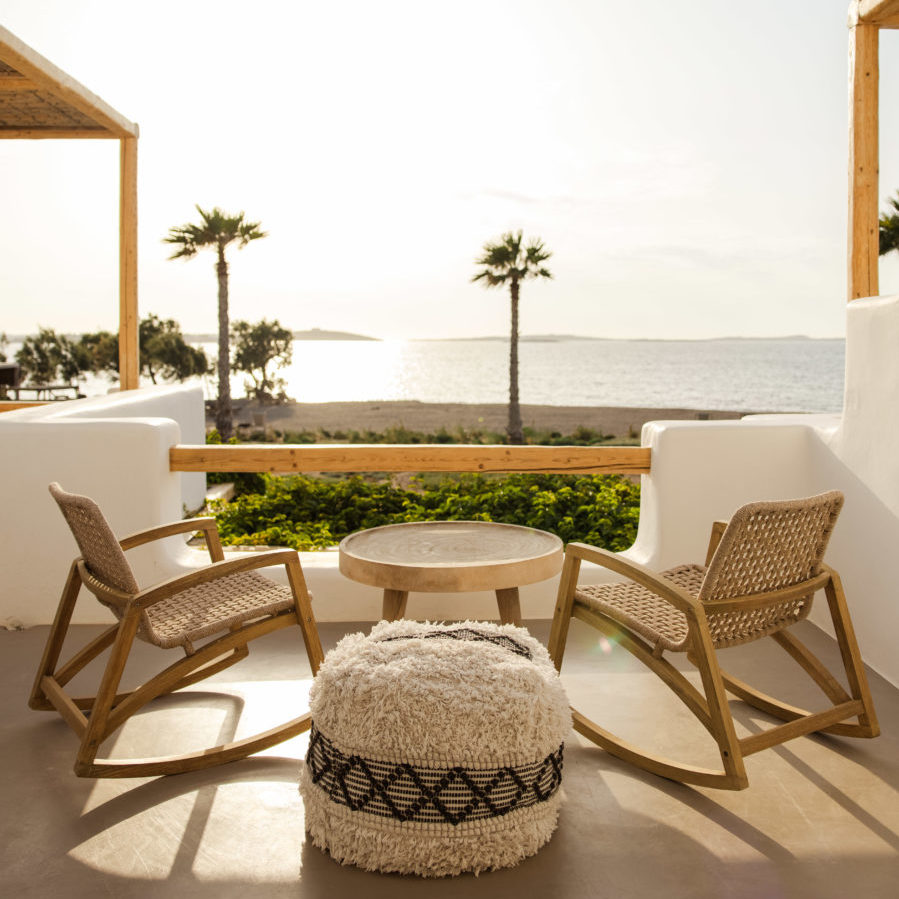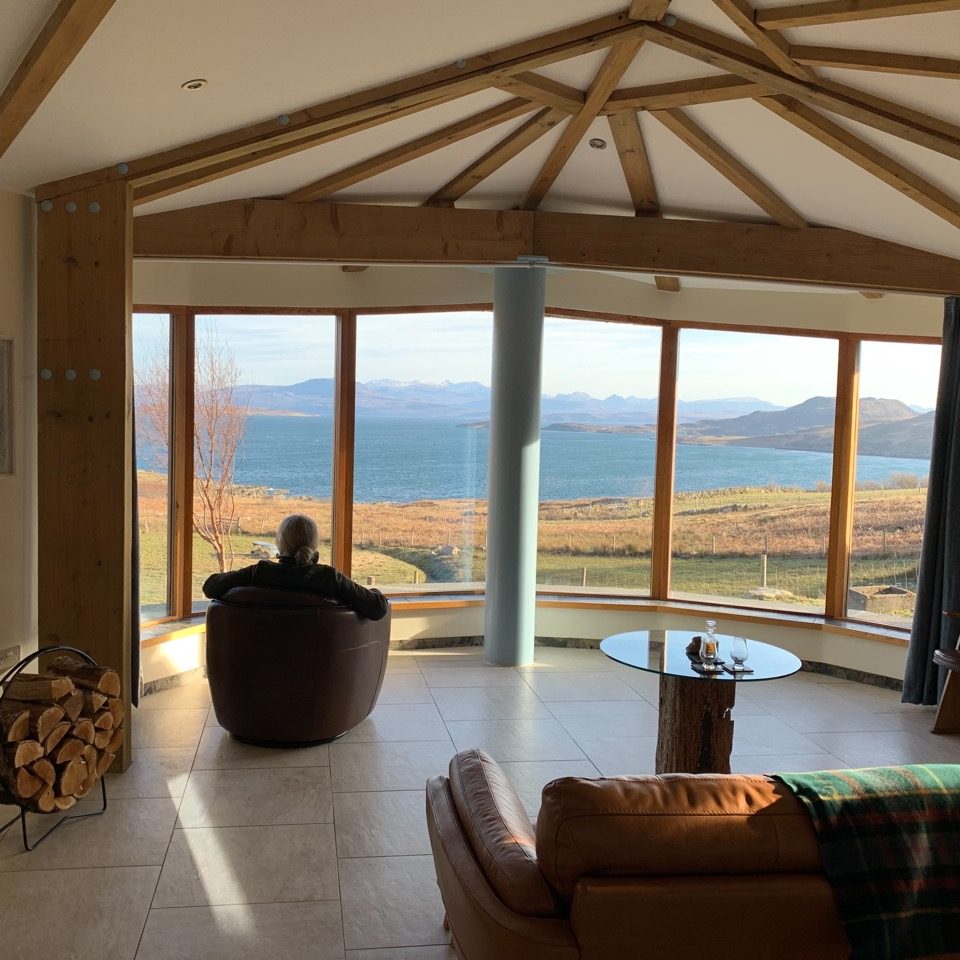April | Travel
The New Eco Hotels Hit List
Get planning for summer with this new crop of sustainable stays
Susan Ward DaviesThere is a view that we shouldn’t be travelling at all, especially if it involves flying but you have to weigh up the good that the right kind of tourism can do: supporting local communities by providing jobs and income, championing sustainable practices, perhaps installing recycling plants, or creating marine or nature reserves. These are our pick of the hot new, eco-conscious places to stay this year, all showing how responsible travel can be done. Bon voyage!
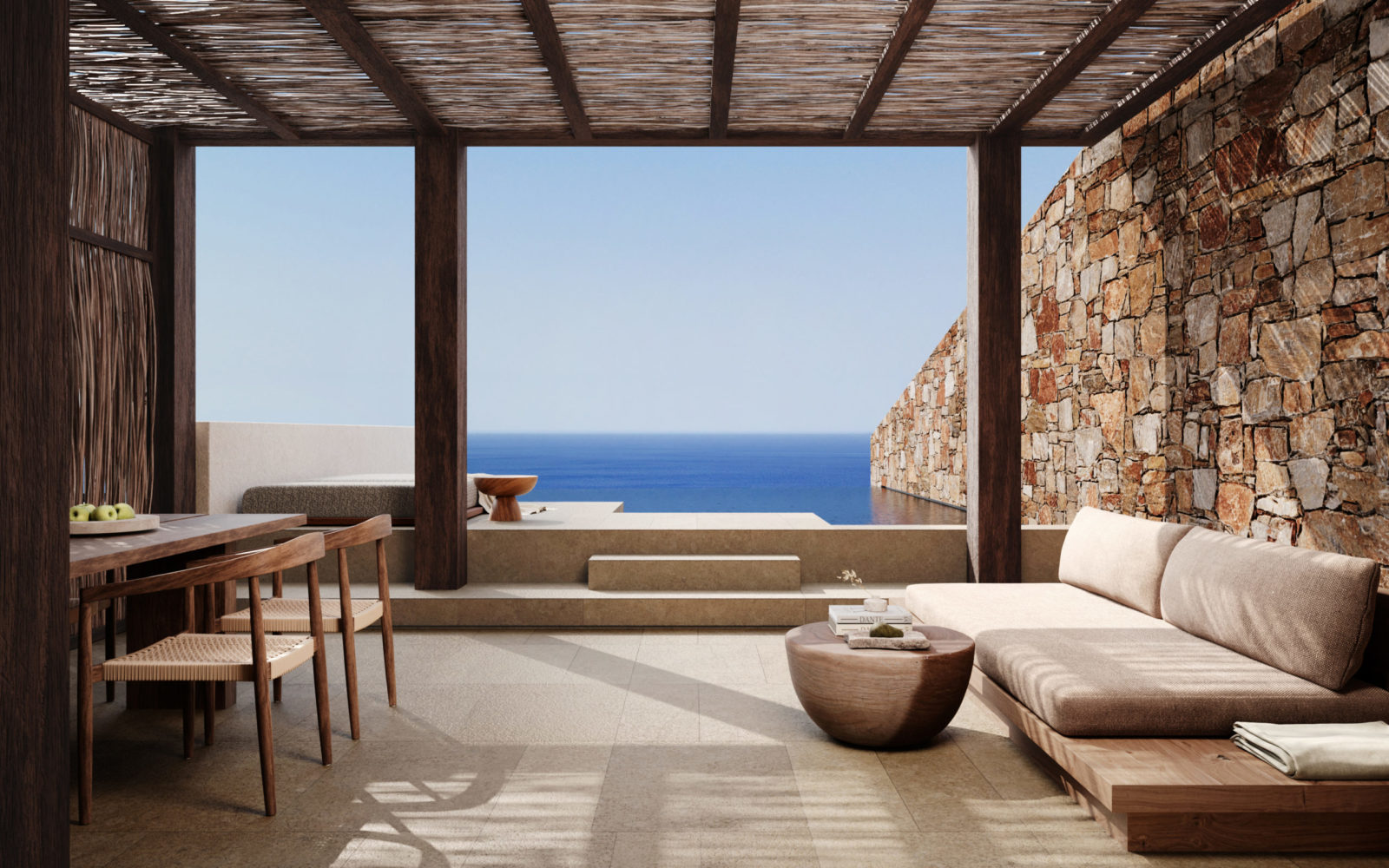
1
Gundari, Folegandros, Greece
Despite being just a 55-minute boat ride from busy Santorini, tiny, unspoilt, airport-free Folegandros (under 13 square miles, around 800 inhabitants), mostly misses out on the tourist masses. Here it is all about raw nature, with its rocky landscape and craggy cliffs, citrus trees sheltered from the wind by dry stone walls, and just a single road that snakes across the island. Folegandros’ three little villages have traditional white and blue houses, shady squares and traditional kafenions, and the distinctive, Mama-Mia-style Panagia church, accessed by a vertiginous, zigzag path, is a prime sunset-watching point.
The new Gundari, the island’s first luxury eco hotel, has picked a dramatic spot in 80 rugged, cliff-top acres overlooking the twinkling Aegean. Designed by Athenian architects Block 722, Gundari’s 27 bioclimatic suites and villas, each with a private pool, are all done in earthy, muted tones and natural materials. The spa is all about regeneration, with visiting practitioners guiding yoga, sound baths and meditation classes, and the farm-to-table restaurant is helmed by Greece’s first Michelin-starred chef, Lefteris Lazarou, using produce from Gundari’s organic garden.
Eco credentials: Gundari is certified by Earth Check, who audit and monitor carbon. The resort was conceived and built with sustainability in mind, using stone excavated on site and local timber. Bioclimatic buildings maximise energy efficiency; renewable solar energy powers hot water and heats the pool, and waste-water is biologically treated (with microorganisms instead of chemicals), and used for irrigation. Around 600 seedlings were collected before construction started, and returned afterwards to help regenerate the land, and being on a nature birdlife reserve, they have a bird monitoring and conservation programme. For the community: they support the island’s new medical facility, promote local restaurants, employ islanders and buy local as much as possible
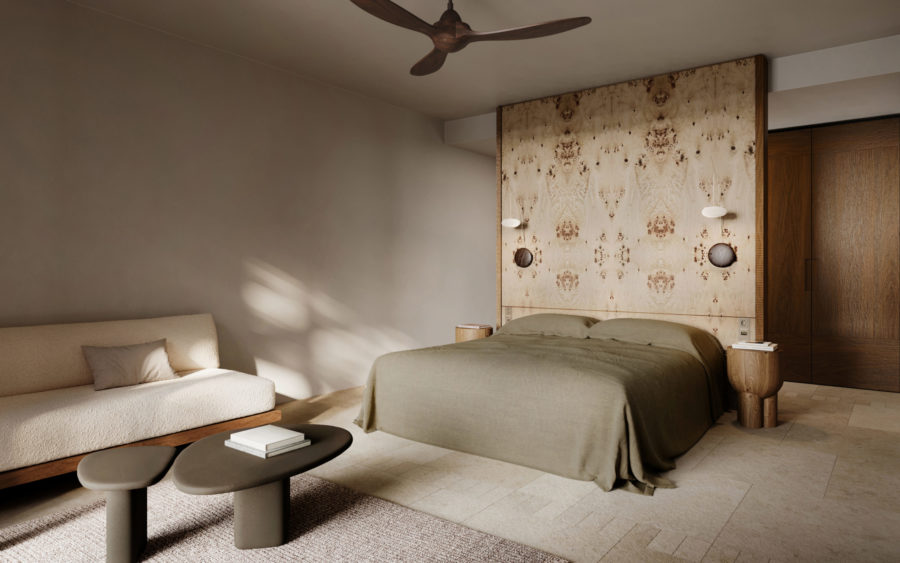
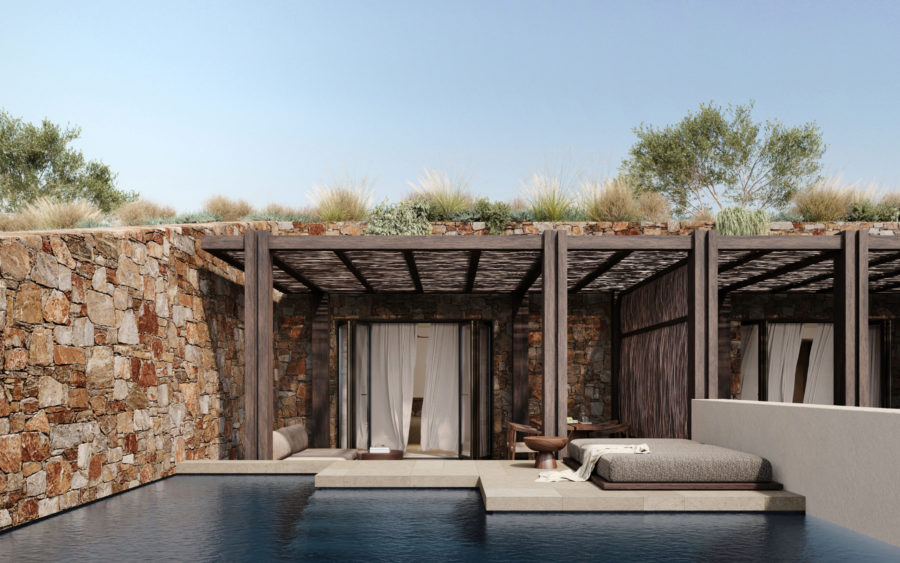
Images courtesy of Guldari
2
Boca de Agua, Bacalar, Mexico
Known as El Pueblo Magico, the pretty little town of Bacalar is something of a backpacker hotspot, as travellers move on from overcrowded Tulum (two hours north), attracted by Bacalar’s spectacular but environmentally sensitive Lagoon of Seven Colours. On the south east of the Yucatan Peninsula, near the Belize border, the lagoon is around 35 miles long and a mile wide, an elongated, narrow, shallow body of water which shimmers in a kaleidoscope of blues and turquoises due to its white sandy bed, varying depths and deep cenotes (sink holes). A new crop of eco-conscious boutique hotels is appearing along its shores, most notably the Boca de Agua, just ten minutes’ drive from town, and the only project in the rehabilitated mangrove eco-system area.
Designed by award-winning, Mexico City-based architect, Frida Escobedo (renowned for doing the new wing of The Met and the 2018 Serpentine Pavilion), the resort sits on 82 acres, 260 metres of it fronting the lagoon, with more than 90 % of the land left untouched to form part of a conservation and regeneration programme. Escobedo has created 26 extraordinary one and two-bedroom luxury treehouses, built on floating pillars to minimise impact on the land, and with her trademark latticework to allow for natural ventilation. The resort has a bar, a restaurant serving Yucatecan cuisine made with local ingredients, a star-gazing platform, squidgy loungers on shaded jetties, and its own pier. Upgrade to the Masterpool Jungle Treehouse and you will get your own pool and terrace.
Eco credentials: The site covers 82 acres, 260 metres of it fronting the lagoon. More than 90 % of the land remains untouched as part of a conservation and regeneration programme. The treehouses were built using locally sourced, tropical hardwoods with felling programmes certified by the FSC (Forest Stewardship Council), and are raised from the ground to minimise their impact. Wastewater goes to a membrane bio-reactor water treatment plant, before being used for bathrooms and irrigation. No waste goes into the lagoon. Furniture and amenities are mostly made with recycled materials by local artisans, amenities are custom-made with natural and biodegradable materials, and electricity is provided by Ammper, a Mexico-based renewable energy supplier.
Every mangrove on site was mapped and the elevated wooden walkway was built around them to avoid damage or removal. One hectare of the nearby mangrove ecosystem damaged by human activity was replanted, and local NGO, Con Mono Araña, studies the behaviour of spider monkeys in the Boca de Agua reserve to help protect and expand their habitat.
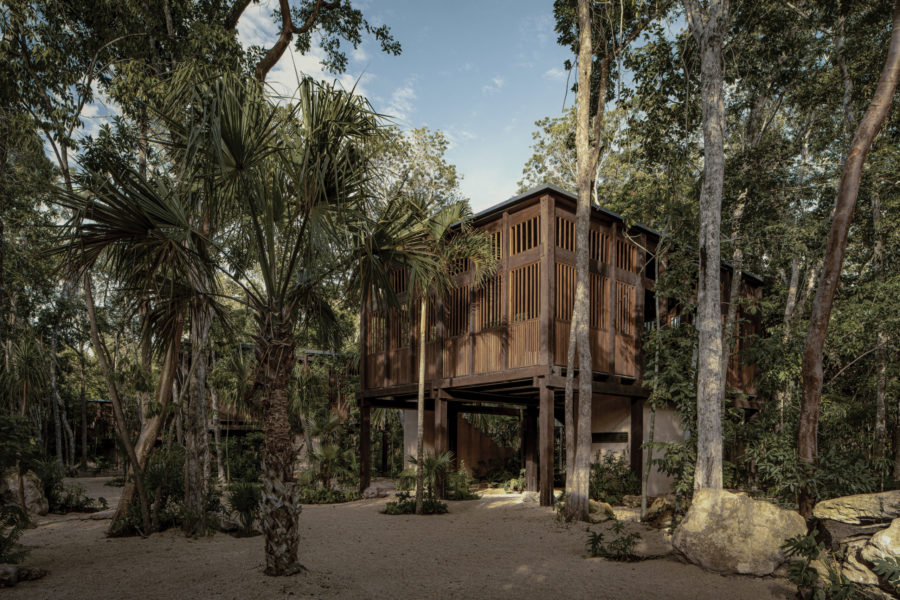
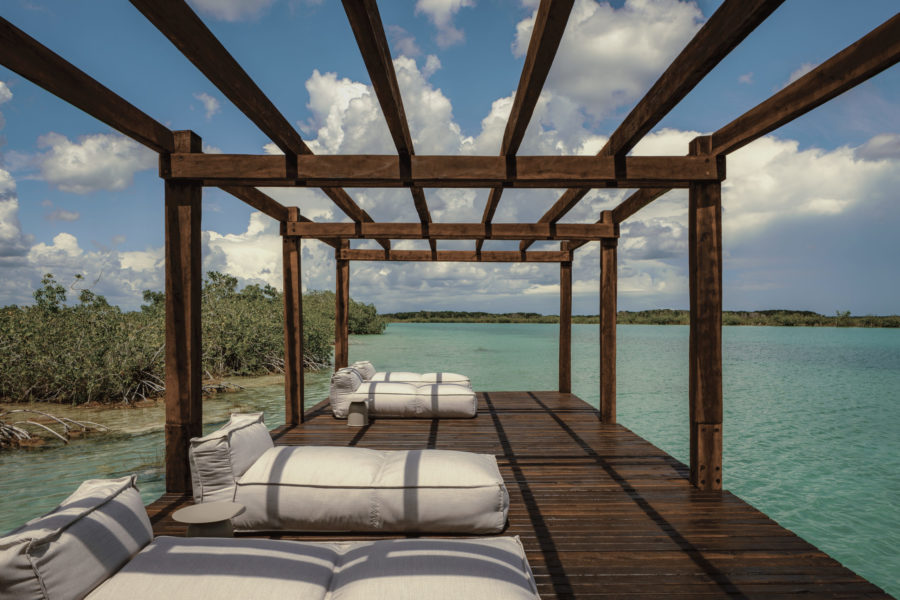
Images courtesy of Boca da Agua
3
Dunas de Formentera, Balearics
Formentera, Ibiza’s little sister, is a different kind of wild to its party-loving sibling, with its bleached white beaches, migrating flamingos (July to October), ancient windmills, white-washed churches, windswept lighthouses and weatherworn chiringuitos selling icy beer and tortillas. Its underwater Posidonia seagrass meadows, a UNESCO Heritage site, are dubbed the lungs of the Mediterranean, as one square metre makes as much oxygen as one hectare of Amazonian rainforest.
The 30-minute ferry from Ibiza drops you at Formentera’s La Savina, from where it’s just a 15-minute drive south to sandy, three-mile Playa Migjorn and the new Dunas de Formentera. The second island property from the Spanish Marugal family of one-of-a-kind boutique hotels, Dunas is set back from the beach, with 45 rooms and suites, some with outdoor terraces and day beds, and all tricked out natural textures and restful neutral tones enlivened by pops of stripey fabric. The restaurant is all about fresh, local, quality ingredients – expect sargo or grouper straight from the sea, homegrown figs and ramallet tomatoes to fill up on after lazy days in the sun. And despite being just a flipflop’s throw from the tempting turquoise Mediterranean, there is also a large infinity pool to cool off in.
Eco credentials: CEO of Marugal, Pablo Carrington, believes hotels should help protect the environment in which they operate, as well as the location’s identity. As the first regenerative hotel in Formentera, each of Dunas de Formentera’s spaces will be self-sufficient, using only renewable energy sources and recycling all the wastewater. They use local suppliers, fund beach-cleaning initiatives, and are running a local marine life regeneration project, supported by guest donations that are matched by the company.
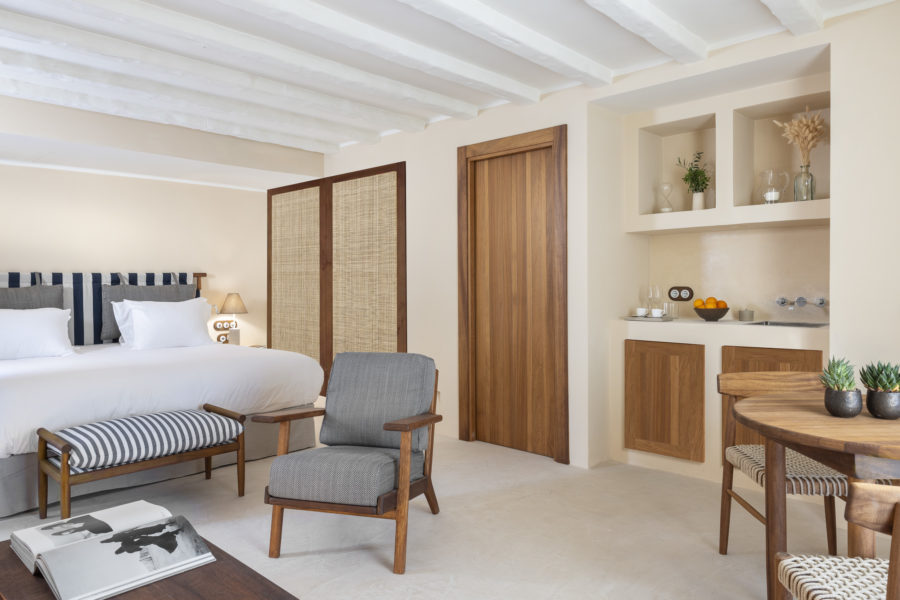
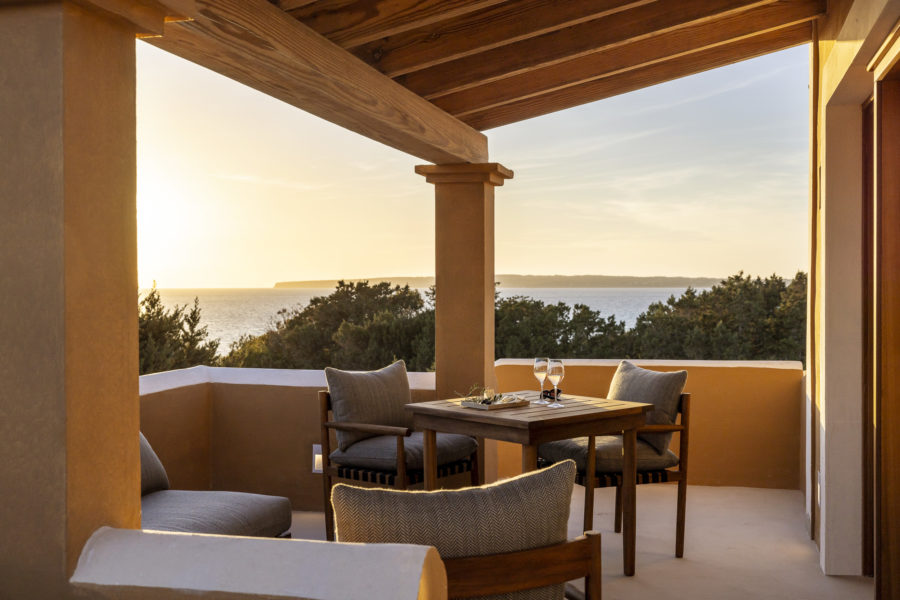
Images courtesy of Dunas de Formentera
4
Soneva Secret, Maldives
You would be hard pushed to find anywhere quite as blissed out as an overwater villa in the Maldives, which is Honeymoon Central for a reason, what with all those white sands, technicolour fish, epic sunsets, and dolphins and manta rays cavorting in the waves. Soneva are old hands at the honeymoon game here, having opened Soneva Fushi, the nation’s very first luxury resort and first spa, way back in 1995, and their overwater hideaway, Soneva Jani in 2016. Soneva Secret is the latest of their projects (which include a fancy yacht and a resort in Thailand), opening this year in Haa Dhaalu Atoll, with 14 overwater and island villas and the only floating villa in the Maldives, accessible just by boat (or a swim).
All the villas come with a Barefoot Assistant, a Barefoot Guardian and a private chef for next-level pampering, plus their own gym and spa treatment room, and each of the overwater villas has a curved slide to swoosh you straight into the limpid blue lagoon – a genius feature in our book. Expect mosquito-draped four posters that look as if they are made of driftwood, private pools, and retractable roofs for stargazing, which is spectacular here with due to minimal light pollution. When (or if) you emerge from your luxury, Crusoe-esque cocoon, there is beach dining around a fire pit, a clubhouse with games and a library, and even dedicated chocolate and ice cream rooms, where you can indulge on the house.
Eco credentials: Founders Sonu and Eva Malmstrom Shivdasani followed a ‘putting purpose over profit’ ethos from the start (Eva’s title is Creative Director and Conscience). In 2008, they introduced a 2% environmental levy on all stays throughout the hotel group, whose initiatives include turning Styrofoam into building bricks and recycling 90% of their solid waste, aiming for 100% by 2030. Soneva Secret was built with mostly FSC Certified (Forest Stewardship Council) wood, sourced from fast-growing species like pine, clusiana and cedar. They produce their own Soneva drinking water in glass bottles to eradicate plastic waste, and villa amenities use refillable ceramic containers and eco-friendly bamboo. They will offset all carbon emissions, including guests’ air travel.
In their Waste-to-Wealth centre, waste is recycled and upcycled into valuable resources, minimizing landfill, and composting the resort’s organic garden. Eco-friendly mosquito traps avoid the use of harmful insecticides. In partnership with Soneva Foundation Coral Restoration, they’ve established a coral nursery, to rejuvenate vital marine ecosystems. By the end of 2024, a cutting-edge floating solar photovoltaic system (harvesting solar energy), should be in place, which is expected to meet 90% of their energy requirements, championing renewable energy on the island.
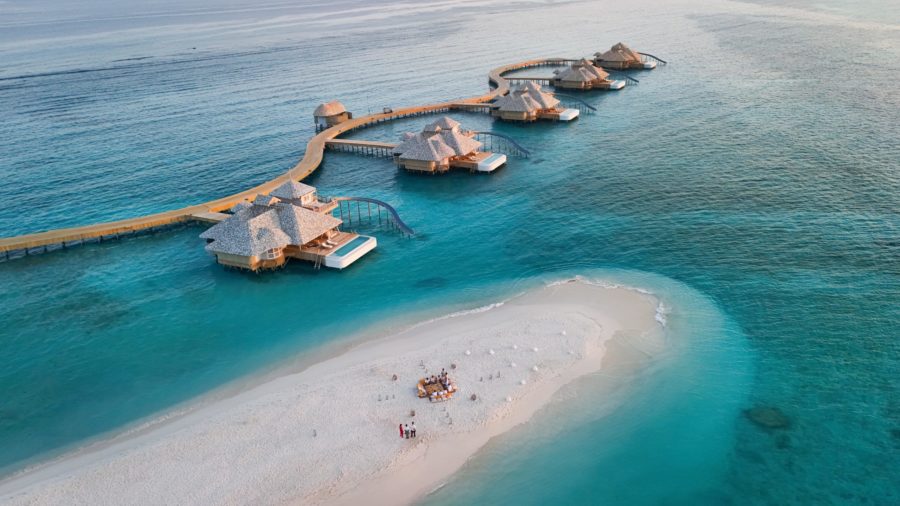
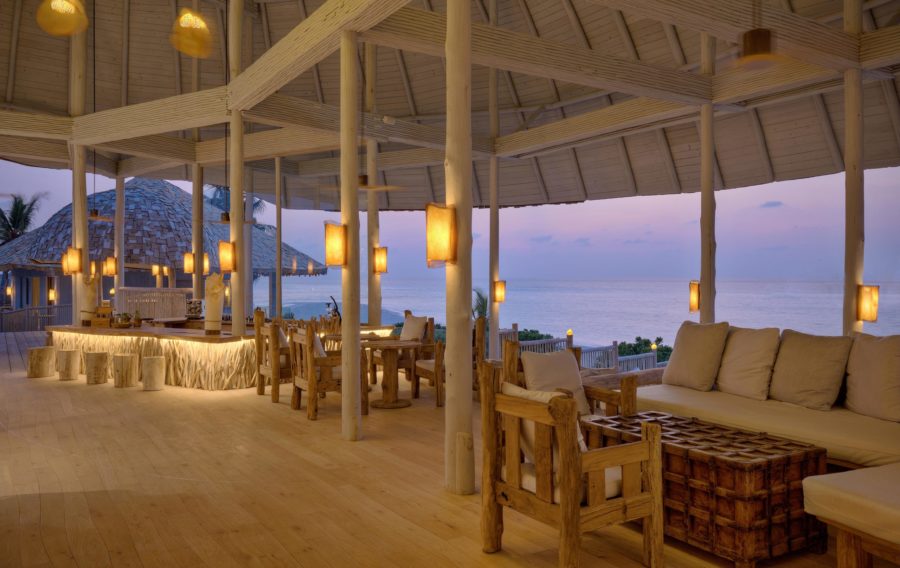
Images courtesy of Soneva Secret
5
Billnas Gard, Finland
Want to find out why the Finns are so often voted the happiest people in the world? You might get some insight at the just-opened wellness retreat/boutique hotel, Billnas Gard, which is all about design-led holistic wellbeing, respect for nature and slowing down, and whose co-owner, Taina Snellman-Langenskiolf, thinks one cause of Finnish cheerfulness is spending a lot of time outdoors. The recently converted, early 20th century, Mediterranean-style manor sits on the Svarta river surrounded by trees, about an hour by rail and road from Helsinki. The restoration, started in 2021, has been done sensitively to retain as much of the original as possible, and to create a feeling of wellbeing. Interiors are a mix of contemporary and classic, with walls painted sludgy pinks, greys and greens, or decked in William Morris wallpaper, a mix of modern and vintage pieces, eye-catching furnishings in vibrant pinks and blues and free-standing, claw-footed baths.
There are only six rooms, each with a private bathroom, and some with river views but if you fancy a more immersive experience in the summer months, you can spend a cosy night in the riverside cabin. Wellness programmes can be bespoke or general, and you can make good use of the meditation space, sauna and herbal bathtub in the spa, or take one of the art and crafts lessons on offer. Outdoors, you can borrow bikes (pedal or electric) to whizz to the pretty neighbouring village of Fiskar, paddleboard along the Svarta, have a dip in the heated saltwater pool or the icy river, or follow the forest walking and hiking trails. And the best treat? Mood-boosting pets in the form of Lugn and Ro (Calm and Peace), the two resident donkeys, guaranteed to up the happiness ante.
Eco credentials: Taina has worked for many years in sustainable design and social responsibility and her company, Tikau, was a pioneer in responsible design thinking, ‘respecting nature, animals and people’. Natural materials and pigments were used in the design of the hotel, with handmade, natural Finnish mattresses made from wool, and locally made rugs. French/Finnish meals are created from local, seasonal and foraged produce as much as possible and local fishermen supply the fish. Wild game comes from the forests, and high welfare meat from carefully selected local farmers. Bread is baked in the kitchen and medicinal plants and herbs are grown in the garden. A programme of holistic experiences is aimed at teaching the guests a slower way of life.
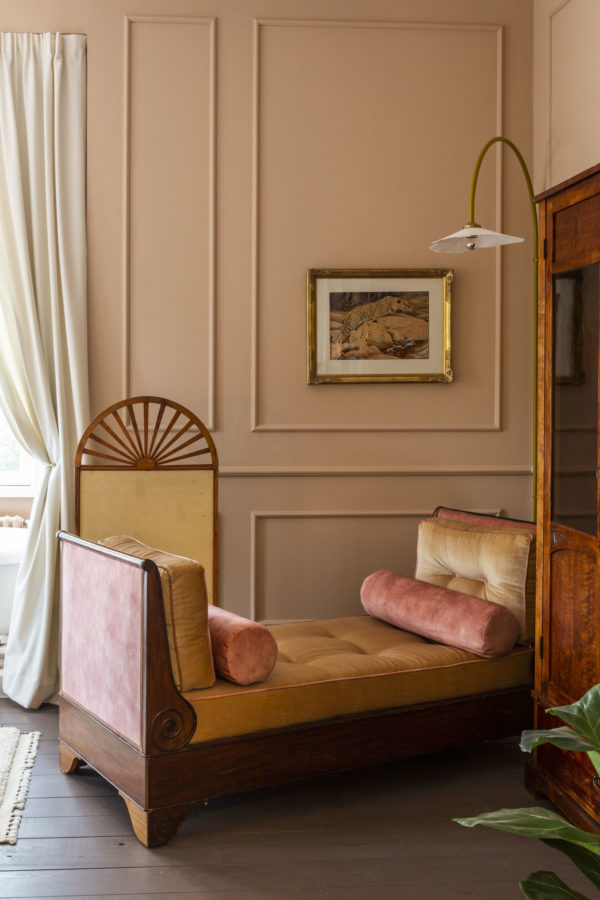
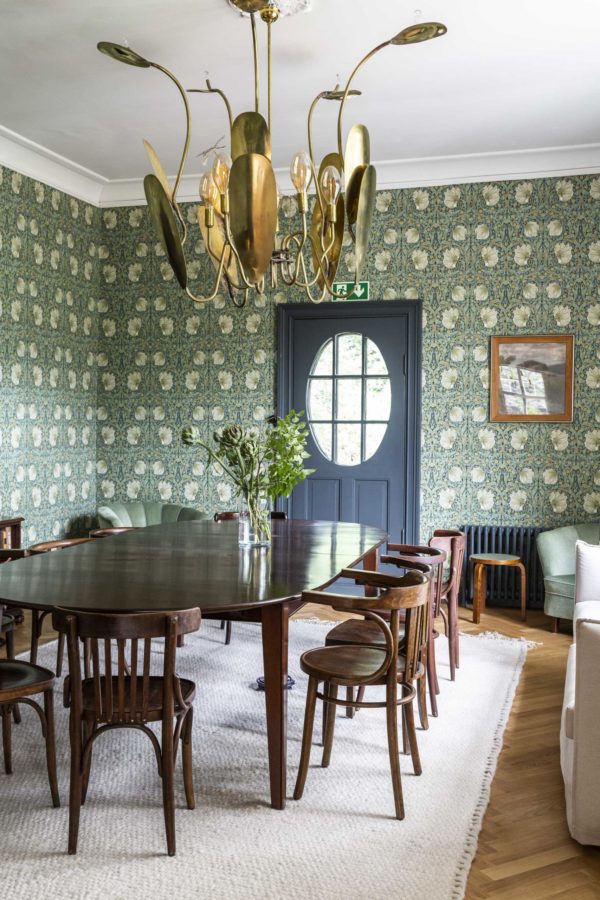
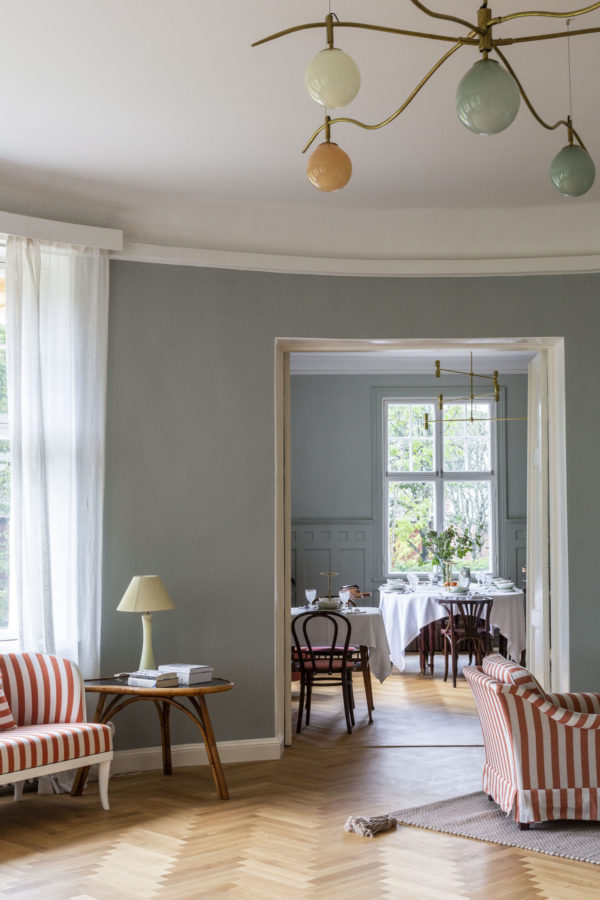
Images courtesy of Billnas Gard
6
Six Senses La Sagesse, Grenada
Grenada is one of our favourite Caribbean hotspots, not just for its lush landscape but because it feels less like a tourist-dominated destination, and more like a real country, with none of the ‘them and us’ feeling of some islands, where tourists and locals don’t really mix. There are spices, rum and homegrown chocolate to sample, waterfalls to swim under, a rainforest to hike in, and a sculpture park to snorkel through. The beaches are the stuff of winter dreams and one of the island’s biggest draws. On the quieter south-east of the island, on a sea-facing headland, the new Six Senses resort, La Sagesse, has two: the wild beach of Lance Pere on one side – all dramatic cliffs and crashing waves – and the calm, clear waters of La Sagesse bay on the other.
Six Senses are known for responsible luxury, and this their first Caribbean resort, with its 56 duplex pool suites and 15 villas, having plenty of space for privacy in the resort’s 38 acres. The menus for the three restaurants are still tbc but you can count on them being pretty much sea- or farm-to-table with an emphasis on fresh, local ingredients. Also known for its top-notch spas, La Sagesse’s is bound to be a beauty, with a 180-foot fitness area, a hammam, and treatment rooms where therapies range from traditional pampering with local spices and herbs, to high-tech sleep-tracking and bio hacking. And to further boost your wellbeing, there are watersports, forest bathing and outdoor fitness trails aplenty. We can’t wait.
Eco credentials: Six Senses’ aim is ‘to build sublime experiences without diminishing the natural world’, and here, the villas were constructed with renewable or repurposed materials, with no building higher than a palm tree. Solar panels provide some of the energy, food waste is composted, they collect rainwater, have a zero-plastic policy and bathrobes are organic cotton. The organic garden supplies the kitchen with fresh fruit, vegetables and herbs, and tasty fish, such as mahi mahi and snapper, comes straight from the sea. In the resort’s onsite Earth Lab, guests can join workshops to learn about nature and how to reduce their carbon footprint. The hotel supports the local bird sanctuary, and they are planting 3,000 trees and bushes and new mangroves along their lagoon, to create a habitat for many species of birds, fish and other animals.
